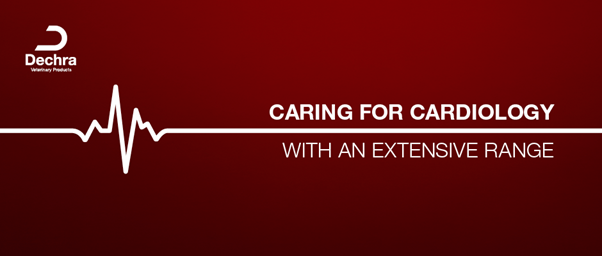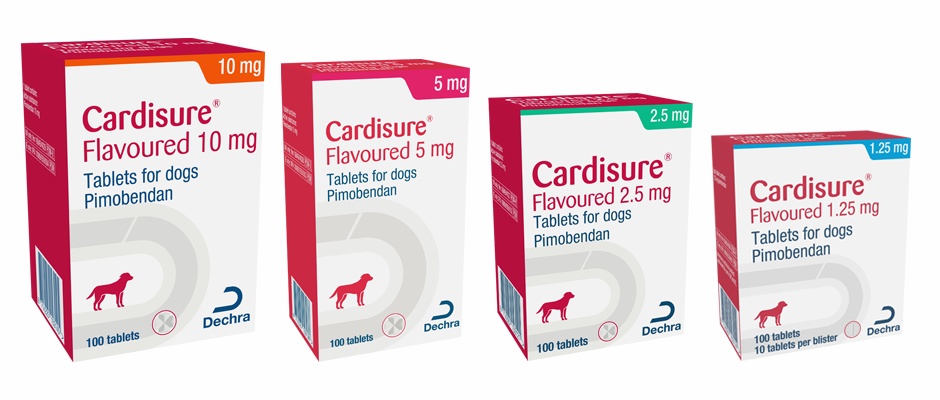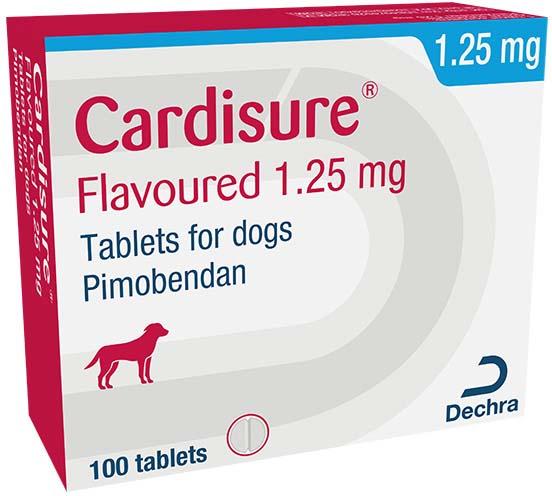-
Keene BW, Atkins CE, Bonagura JD, et al. (2019) ACVIM consensus guidelines for the diagnosis and treatment of myxomatous mitral valve disease in dogs. Journal of Veterinary Internal Medicine. 33(3):1127-1140
-
Martin, M (2012) Canine congestive heart failure: an approach to case management. Vet Times 42.03
Cardiovascular Disease
Cardiovascular disease is a significant part of a small animal vet´s daily clinical work and we aim to be your practical partner in this area.

How common is congestive heart failure in dogs?
Approximately 10% of dogs presented to first opinion vet practices have heart disease. The majority are suffering from acquired, degenerative and progressive, often breed associated, heart conditions like myxomatous mitral valve disease (MMVD) or, less commonly, dilated cardiomyopathy (DCM). Both diseases may eventually lead to overt congestive heart failure, a condition for which treatment requires not only initiation of appropriate medications, but also long-term monitoring and ongoing tailored dose adjustments, in order to gain the best outcome for the patient.
Congenital cardiovascular anomalies are breed related, often hereditary defects which are present at birth and often lead to perinatal death of the affected puppy/puppies. However, in some cases, congenital heart diseases are asymptomatic and undetected until possible symptoms such as inappetence, exercise intolerance, panting, breathlessness and collapse present later in adult life.
How do you diagnose acute congestive heart failure in dogs?
There is no one single diagnostic test for congestive heart failure. Diagnosis is usually made using a combination of signalment (primarily looking at breed and age), history, physical examination, bloodwork, echocardiogram (ECG) measurement and imaging using ultrasonography or radiography to evaluate function and possible signs of cardiomegaly or valvular leakage.
Some cases are detected in an earlier stage of disease by discovering a murmur on a routine auscultation. This is particularly the case in those breeds which are known to be at higher risk of heart disease and therefore are more likely to undergo proactive monitoring for the development of murmurs and/or symptoms of cardiac disease.
Some cases remain undiagnosed until they appear to a vet presenting with a severe circulatory collapse displaying bluish mucus membranes, dyspnea and possibly even loss of consciousness.
What are the treatment options for dogs in congestive heart failure?
Once a dog has been diagnosed with congestive heart failure, the next step is to develop a treatment plan best suited to the individual patient.
In cases of congestive heart failure caused by MMVD, a combination of pharmaceuticals is usually used to improve cardiac output, reduce fluid retention, control blood pressure and hopefully reduce coughing or respiratory distress.
Pimobendan is a key component in this treatment matrix and depending on the stage of disease, diuretics, such as furosemide, and ACE-inhibitors, such as benazepril may also be prescribed1.
Veterinary professionals can click here to find out more.
Dechra Academy
Vet professionals can learn more about diagnosing and practical management of canine congestive heart failure by logging in to Dechra Academy and, enrolling in our bite-size e-learning module.
Pet Owner Website
To help owners monitor their dog’s progression an owner website and resources such as a treatment logbook to increase compliance are available.
What is the goal when treating congestive heart failure in dogs?
Ultimately, the primary objective of treating congestive heart failure is to relieve the symptoms2, leading to a better quality of life. Although the underlying cause of congestive heart failure is uncurable for most patients, by implementing a tailored plan dogs will hopefully feel less exhausted with less exercise intolerance, reduced respiratory oedema, reduced coughing and minimal signs of ascites.
Alongside regular in-clinic monitoring by the vet, dog owners can help monitor their dog’s condition at home by measuring respiratory rate, signs of dyspnea, evaluating abdominal swelling and grading exercise tolerance and overall condition.
Authors
By Emily Armstrong BVSc MRCVS
Veterinary Technical Manager
Dechra Veterinary Products

By Linda Holm Segerqvist DVM
European Companion Animal Product Manager – Cardiovascular
Dechra Veterinary Products

References add










